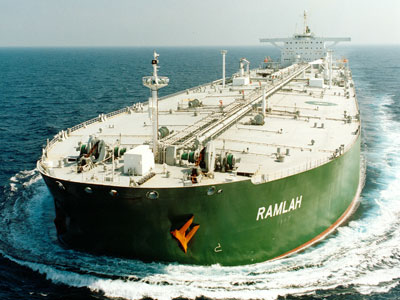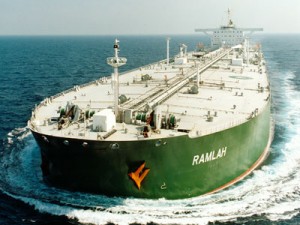Major Cocaine Bust: UK Border Force Seizes Record Shipment at London Gateway
In one of the UK’s largest drug seizures of the past decade, UK Border Force officers have seized cocaine with an estimated street value of £96 million (USD 130 million)...

 For those of you who aren’t petroleum traders, here are some definitions that may help you digest the rest of this article below. This article by Gurdeep Singh of Dow Jones Newswires provides a snapshot of how complicated petroleum price valuations are on a global scale.
For those of you who aren’t petroleum traders, here are some definitions that may help you digest the rest of this article below. This article by Gurdeep Singh of Dow Jones Newswires provides a snapshot of how complicated petroleum price valuations are on a global scale.
OSP: Official Selling Price (as related to petroleum trading)
Cracks: Per Wikipedia:
Crack spread is a term used in the oil industry and futures trading for the differential between the price of crude oil and petroleum products extracted from it – that is, the profit margin that an oil refinery can expect to make by “cracking” crude oil (breaking its long-chain hydrocarbons into useful shorter-chain petroleum products).
In the futures markets, the “crack spread” is a specific spread trade involving simultaneously buying and selling contracts in crude oil and one or more derivative products, typically gasoline and heating oil. Oil refineries may trade a crack spread to hedge the price risk of their operations, while speculators attempt to profit from a change in the oil/gasoline price differential.
SINGAPORE (Dow Jones)–Trade for February-loading spot barrels could start on a bearish note next week as Asian refiners face deteriorating margins after a sharp increase in term crude oil prices by Middle East producers amid weakening product cracks.
Saudi Aramco notified Asian refiners this week of steady term crude supplies in January at full contracted volumes, but could find less enthusiasm for its crude from regional refiners.
Traders with regional refiners said they had yet to finalize their term loading schedule and some could exercise the option of utilizing the operational tolerance to lift slightly less Saudi crude.
With both gasoil and fuel oil cracks coming off recent highs and naphtha cracks remaining subdued, refiners may opt to slightly lower run rates or even take time out for maintenance.
Spot Middle East grades benchmarked to OSPs like Banoco AM could slip into a discount because of the sharp price increase as well as while differentials in general may decline because of an expected decline in demand from Asian refiners.
The narrowing Brent/Dubai EFS is already opening up arbitrage opportunities for Asian refiners to buy Brent-linked grades from West Africa, Russia and even North Sea.
Traders say two VLCC’s of North Sea Forties crude were already fixed to head to Asia. With high valuation of Dubai-linked grades after the sharp increase in Middle East OSPs, the arbitrage economics could again become workable, challenging demand for Middle East crudes like Abu Dhabi’s Murban and Qatar Land. Although weak naphtha and gasoline cracks could limit refiners’ appetite for lighter grades.
The Asian fuel oil market could ease further, weighing on demand of medium-heavy grades that also saw sharply higher OSPs. The fuel oil market appears better supplied in January with nearly 4.5 million metric tons of arbitrage inflows. While the highest arbitrage inflows in recent months will likely weaken the product’s cracks, low inventory levels in Singapore are likely to support the bottom.
Both Iran and Iraq are expected to announce their OSPs early next week and refiners remain cautious if both will be as aggressive as Saudi Aramco in setting their prices.
Kuwait Petroleum Friday raised its OSP but the increase was less than rival Saudi Arab Medium grade.
-By Gurdeep Singh, Dow Jones Newswires

Sign up for gCaptain’s newsletter and never miss an update

Subscribe to gCaptain Daily and stay informed with the latest global maritime and offshore news


Stay informed with the latest maritime and offshore news, delivered daily straight to your inbox
Essential news coupled with the finest maritime content sourced from across the globe.
Sign Up